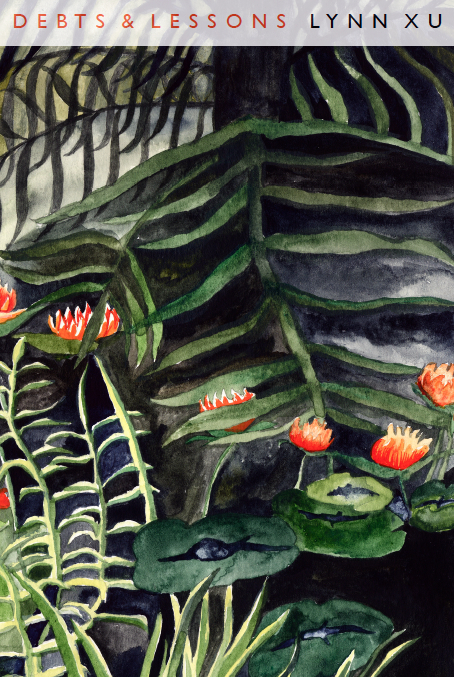A debt to her heritage
Updated: 2013-05-10 11:18
By Kelly Chung Dawson in New York (China Daily)
|
||||||||
When the poet Lynn Xu was a child in Shanghai, she was diagnosed with a severe allergy to the sun. As a result, she spent long days indoors with her grandmother, pouring over classical Chinese poems. Brimming with evocative images of lonely men on snow-ringed lakes and mountains, the poems made an ineradicable impression. Through the playful rhythms of an art form known for its meditative images, she came to view language and the world in a distinctive manner that shapes her writing even today.
 |
|
Lynn Xu's Debts & Lessons was inspired in part by the Meditations of Marcus Aurelius. Photo provided to China Daily |
In Debts and Lessons, a collection of poems written in both China and the United States, Xu explores the resonance of connections between lovers, friends and cultures. Inspired in part by the Meditations of Marcus Aurelius, the work is as likely to reference the Spanish poet Federico Garcia Lorca as the Chinese writer Gu Cheng.
In honor of the latter, whose work with the "Misty Poets" movement is said to have influenced China's first generation of rock musicians, Xu writes: "Autumn 1981/ I am not born/ But my clothes are blowing in the street/ And through the trees/ Flowing up along the road."
In a poem dedicated to Emily Dickinson, she presents four Chinese characters, all pronounced "Ye," strung together to mean: "Night/ Also/ Pages/ Wild."
Raised in Shanghai and the US, Xu began writing creatively in Chinese during high school. Later she won a Fulbright scholarship to write poetry in China, the results of which are included in this collection. She is currently studying for a PhD in comparative literature at the University of California, Berkeley, through the Jacob K. Javits fellowship.
Although she has worked to retain her Chinese language skills, Xu considers English to be her dominant language.
"When I go back to China, I feel a sense of aphasia as this other language replaces the one I now feel most comfortable with," she said. "I wanted to test the two languages against each other, and the imagination of both the city and the subject. There are discrepancies between modes of experience when you transition from one language to another, and in presenting language to people who don't speak or understand that language."
In a section titled "Night Fall," Xu's poems intersperse Chinese and English, with full English translations presented alongside the originals. The English words that appear in the originals often do not correspond to the English translation, a deliberate disorientation intended to make the reader question their assumptions about language comprehension, Xu said.

 Michelle lays roses at site along Berlin Wall
Michelle lays roses at site along Berlin Wall
 Historic space lecture in Tiangong-1 commences
Historic space lecture in Tiangong-1 commences
 'Sopranos' Star James Gandolfini dead at 51
'Sopranos' Star James Gandolfini dead at 51
 UN: Number of refugees hits 18-year high
UN: Number of refugees hits 18-year high
 Slide: Jet exercises from aircraft carrier
Slide: Jet exercises from aircraft carrier
 Talks establish fishery hotline
Talks establish fishery hotline
 Foreign buyers eye Chinese drones
Foreign buyers eye Chinese drones
 UN chief hails China's peacekeepers
UN chief hails China's peacekeepers
Most Viewed
Editor's Picks

|

|

|

|

|

|
Today's Top News
Shenzhou X astronaut gives lecture today
US told to reassess duties on Chinese paper
Chinese seek greater share of satellite market
Russia rejects Obama's nuke cut proposal
US immigration bill sees Senate breakthrough
Brazilian cities revoke fare hikes
Moody's warns on China's local govt debt
Air quality in major cities drops in May
US Weekly

|

|








